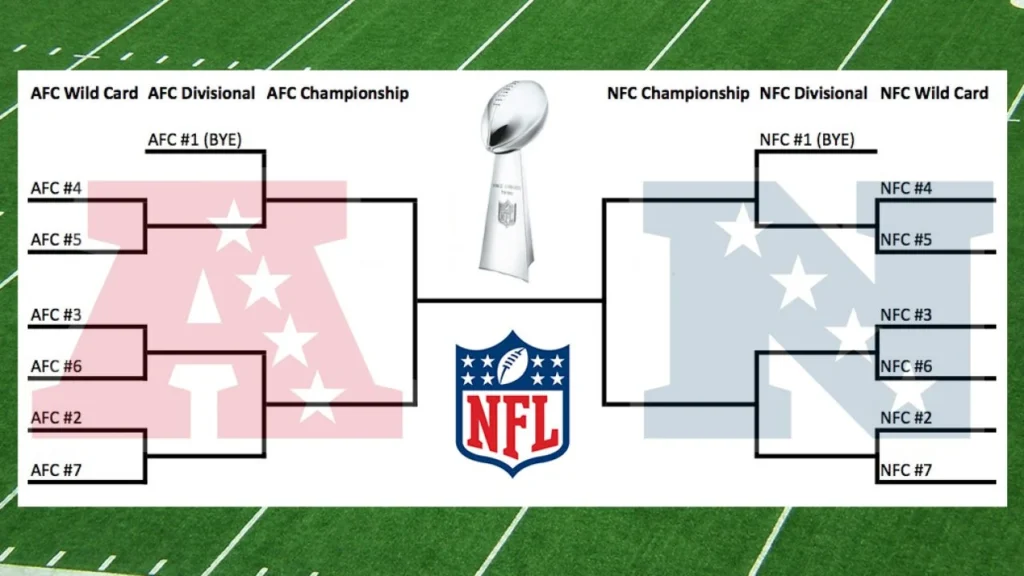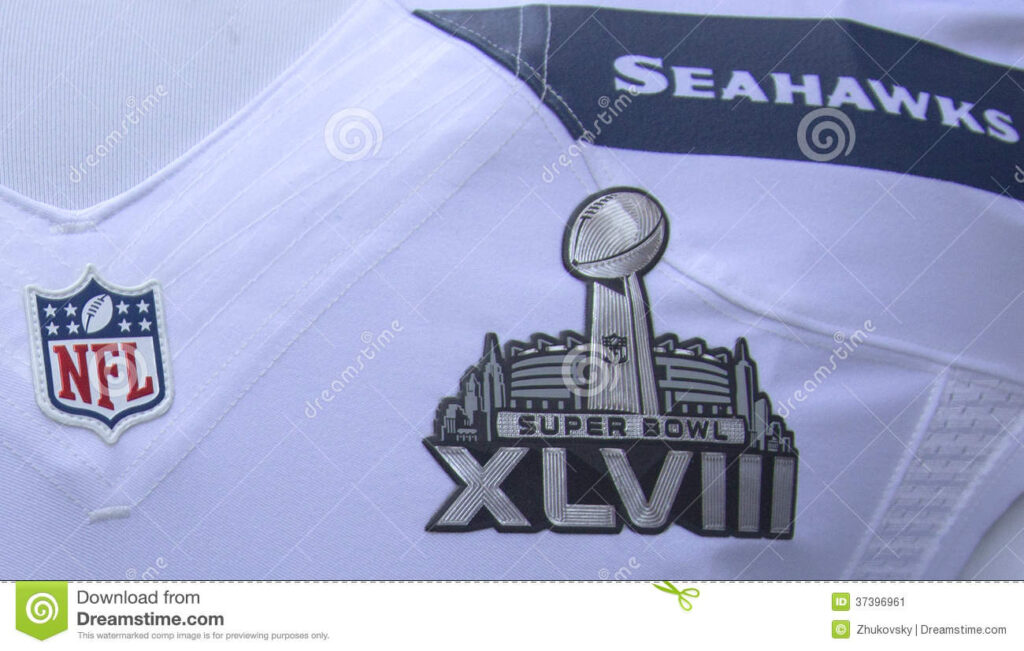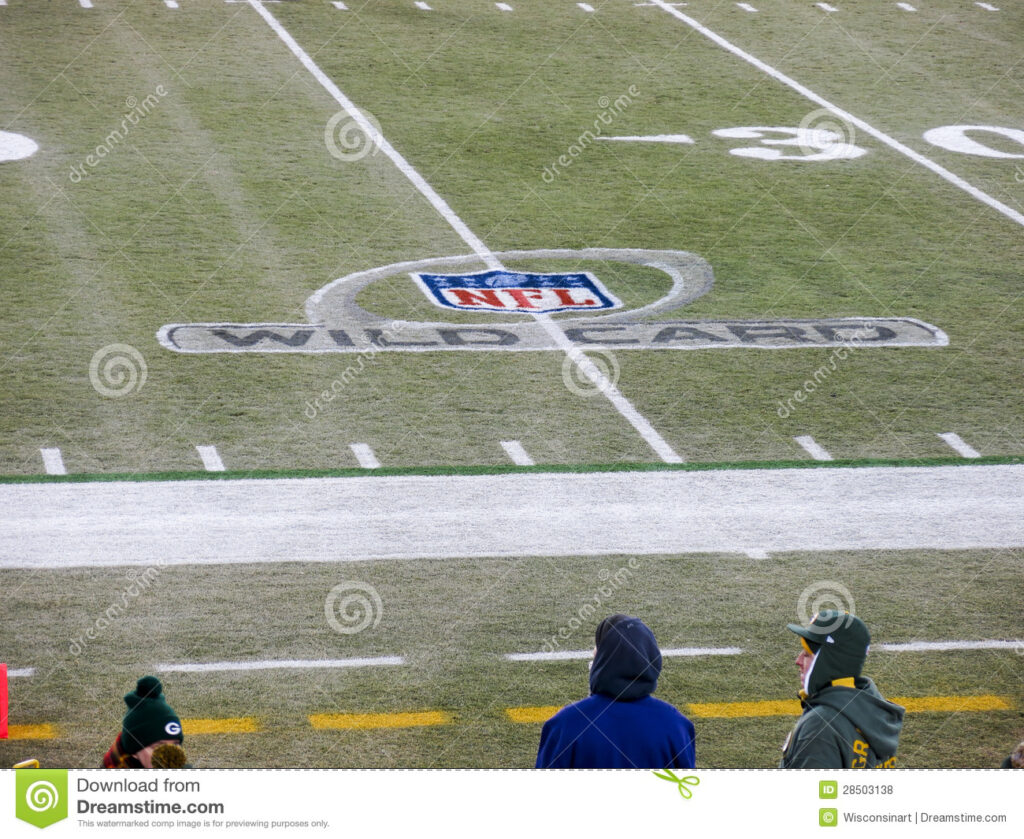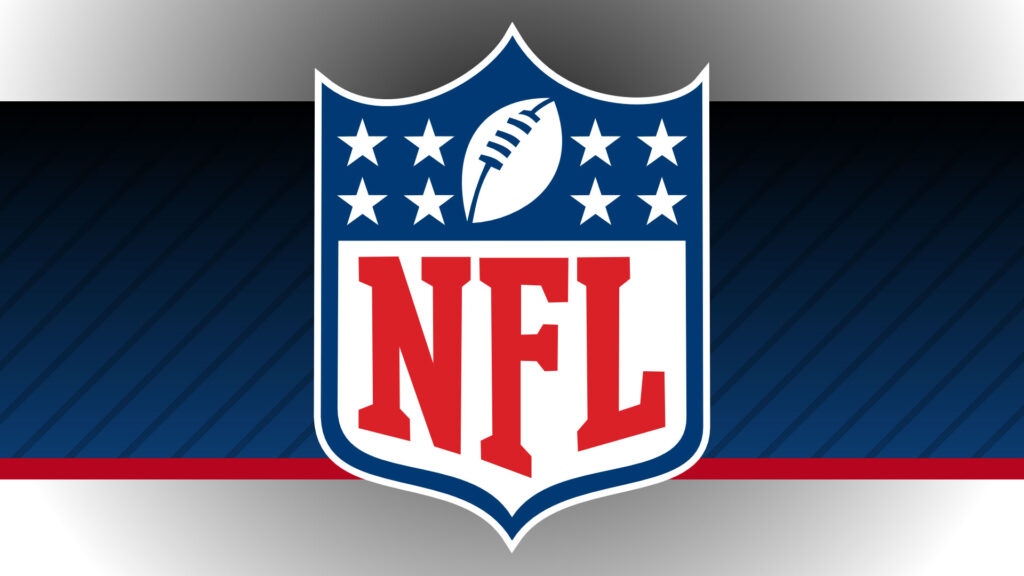For most North American citizens, the NFL Playoffs are the best time of the year. At this point, your favorite team has either had a disappointing last four months or a successful season. The best part about the NFL playoffs is even if your team did not make it, it’s still extremely exciting if you are a football fan. A single-elimination must-win scenario will have you on the edge of your seat for every game. As exciting as the NFL playoffs are, how does it all work? What is the NFL Playoff format? Well, let’s find out.
The NFL Playoffs consist of 14 teams total. Seven teams from each conference qualify and the number one seeds in each conference start the playoffs with a bye to the second round. The other top three seeds consist of the other division winners in each conference.
What Is The NFL Playoff Format?
The NFL is split between two conferences, the NFC and the AFC. There are four divisions in each conference. Each conference is separated throughout the playoffs to play each other until the winner of each conference plays each other in the Super Bowl.
The NFL as recently as 2021 changed the format of its playoff structure. For the previous 30 years up to that, the playoffs consisted of 6 teams from each conference. Same deal as now, with the 1 seed getting a bye into the second round. But the main change is in the old format the 2 seed also had a bye into the second round. Now, the new playoff format added the seventh team to the playoffs and the 2 seed now faces the 7 seed in the first round.
Something the NFL has remained consistent within its playoff format is rewarding division winners with home-field to start the playoffs. The top four seeds in each conference consist of the four division winners. The division winners are arranged by their record. The interesting aspect of this is the 4 seed could be a division winner and have home field in the first round, but the 5 seed could have a better record and play against the 4 seed on the road. That is why winning your division is so important.
NFL Playoff Format Structure
- #1 seed. Division winner and the best record in the conference. Home field throughout the playoffs until the Super Bowl.
- #2 seed. Division winner and second-best record among the division winners.
- #3 seed. Division winner and third-best record among the division winners.
- #4 seed. Division winner and the fourth-best record among the division winners.
- #5 seed. The best record in the conference among second-place teams within their divisions.
- #6 seed. The next best record in the conference after the 5 seed.
- #7 seed. The next best record in the conference after the 6 seed.
Here is a breakdown of how the NFL playoffs are formatted, and how they progress:

Wild Card Round (Round 1):
- #1 seed = Bye
- #2 seed (Home) versus #7 seed (Away)
- #3 seed (Home) versus #6 seed (Away)
- #4 seed (Home) versus #5 seed (Away)
Divisional Round (Round 2)
The divisional round will consist of the four remaining teams in each conference. The way the bracket works is the lowest seed will always play the highest remaining seed. There are a very high number of seeding scenarios, based on who wins in the Wild Card Round.
Championship Round (Round 3)
Round 3 is the championship round for each conference. At this point, only four teams remain with it being two teams in each conference. The same logic for seeding throughout the playoffs applies here as well. The highest seed between the two teams in each conference championship game will have home-field advantage for this game.
Super Bowl (Round 4)
The NFL’s championship game is the Super Bowl. The Super bowl consists of the two teams who won their respective conferences through the three rounds of playoffs. The Super Bowl is always played at a neutral location that is decided before the season begins. There is not necessarily a home and away team, as the crowd in this game usually consists of NFL fans for all teams.
The past two seasons however have had the host cities team make the Super Bowl and in fact win it. In 2020, the Super Bowl was held in Tampa Bay Florida, and the Tampa Bay Buccaneers won the Super Bowl over the Kansas City Chiefs. In 2021, the Super Bowl was in Los Angeles California, and the LA Rams beat the Cincinnati Bengals.

Why does The NFL Reseed In The Playoffs?
The sole reason as to why the NFL reseeds after each round in the playoffs is simple. The highest level of competition. If the NFL did not reseed its playoffs, a number one or two seed could easily be eliminated early on in the playoffs. By reseeding, it provides the league the highest chance that the best teams will play the best teams. This allows for the best competition, higher TV ratings, and ultimately a deserving champion.
What Is The Wild Card In The NFL Playoff Format?
The NFL Wild Card is a structure within the playoff format for the three playoff qualifying teams that did not win their divisions. The Wild Card seeds are #5, #6, and #7 in each conference. Wild card teams have the hardest road throughout the playoffs, as unless there is a major upset within the playoffs, they will always play on the road. The new 7 seed will play on the road regardless as they are the highest-seeded team in the playoffs.
Since 1980, there have only been 7 Wild Card teams to win the Super Bowl. These are them:
- 1980 Oakland Raiders
- 1997 Denver Broncos
- 2000 Baltimore Ravens
- 2005 Pittsburgh Steelers
- 2007 New York Giants
- 2010 Green Bay Packers
- 2020 Tampa Bay Buccaneers

I hope you found this article informative and what you were looking for. The NFL is the greatest sports league in the world for top-level competition and excitement. The playoff format is a huge part of it, especially now that they added a seventh team to each conference. It’s easily my favorite time of the year for sports.
If you want to check out other football-related content, just click here. For more content related to other sports, click here to check out the rest of our site.
Till next time, at On The Record.

